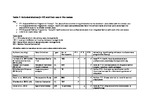Improving hospital discharge arrangements for people who are homeless: A realist synthesis of the intermediate care literature
| dc.contributor.author | Cornes, M | |
| dc.contributor.author | Whiteford, M | |
| dc.contributor.author | Manthorpe, J | |
| dc.contributor.author | Neale, J | |
| dc.contributor.author | Byng, Richard | |
| dc.contributor.author | Hewett, N | |
| dc.contributor.author | Clark, M | |
| dc.contributor.author | Kilmister, A | |
| dc.contributor.author | Fuller, J | |
| dc.contributor.author | Aldridge, R | |
| dc.contributor.author | Tinelli, M | |
| dc.date.accessioned | 2017-08-16T14:22:36Z | |
| dc.date.available | 2017-08-16T14:22:36Z | |
| dc.date.issued | 2017-07-20 | |
| dc.identifier.issn | 0966-0410 | |
| dc.identifier.issn | 1365-2524 | |
| dc.identifier.uri | http://hdl.handle.net/10026.1/9834 | |
| dc.description.abstract |
This review presents a realist synthesis of "what works and why" in intermediate care for people who are homeless. The overall aim was to update an earlier synthesis of intermediate care by capturing new evidence from a recent UK government funding initiative (the "Homeless Hospital Discharge Fund"). The initiative made resources available to the charitable sector to enable partnership working with the National Health Service (NHS) in order to improve hospital discharge arrangements for people who are homeless. The synthesis adopted the RAMESES guidelines and reporting standards. Electronic searches were carried out for peer-reviewed articles published in English from 2000 to 2016. Local evaluations and the grey literature were also included. The inclusion criteria was that articles and reports should describe "interventions" that encompassed most of the key characteristics of intermediate care as previously defined in the academic literature. Searches yielded 47 articles and reports. Most of these originated in the UK or the USA and fell within the realist quality rating of "thick description". The synthesis involved using this new evidence to interrogate the utility of earlier programme theories. Overall, the results confirmed the importance of (i) collaborative care planning, (ii) reablement and (iii) integrated working as key to effective intermediate care delivery. However, the additional evidence drawn from the field of homelessness highlighted the potential for some theory refinements. First, that "psychologically informed" approaches to relationship building may be necessary to ensure that service users are meaningfully engaged in collaborative care planning and second, that integrated working could be managed differently so that people are not "handed over" at the point at which the intermediate care episode ends. This was theorised as key to ensuring that ongoing care arrangements do not break down and that gains are not lost to the person or the system vis-à-vis the prevention of readmission to hospital. | |
| dc.format.extent | e345-e359 | |
| dc.format.medium | Print-Electronic | |
| dc.language | en | |
| dc.language.iso | en | |
| dc.publisher | Wiley | |
| dc.subject | homelessness | |
| dc.subject | hospital discharge | |
| dc.subject | intermediate care | |
| dc.subject | medical respite | |
| dc.subject | realist synthesis | |
| dc.subject | transition of care | |
| dc.title | Improving hospital discharge arrangements for people who are homeless: A realist synthesis of the intermediate care literature | |
| dc.type | journal-article | |
| dc.type | Journal Article | |
| dc.type | Research Support, Non-U.S. Gov't | |
| dc.type | Review | |
| plymouth.author-url | https://www.webofscience.com/api/gateway?GWVersion=2&SrcApp=PARTNER_APP&SrcAuth=LinksAMR&KeyUT=WOS:000429549900004&DestLinkType=FullRecord&DestApp=ALL_WOS&UsrCustomerID=11bb513d99f797142bcfeffcc58ea008 | |
| plymouth.issue | 3 | |
| plymouth.volume | 26 | |
| plymouth.publication-status | Published online | |
| plymouth.journal | Health and Social Care in the Community | |
| dc.identifier.doi | 10.1111/hsc.12474 | |
| plymouth.organisational-group | /Plymouth | |
| plymouth.organisational-group | /Plymouth/Faculty of Health | |
| plymouth.organisational-group | /Plymouth/Faculty of Health/Peninsula Medical School | |
| plymouth.organisational-group | /Plymouth/REF 2021 Researchers by UoA | |
| plymouth.organisational-group | /Plymouth/REF 2021 Researchers by UoA/UoA03 Allied Health Professions, Dentistry, Nursing and Pharmacy | |
| plymouth.organisational-group | /Plymouth/Research Groups | |
| plymouth.organisational-group | /Plymouth/Research Groups/FoH - Community and Primary Care | |
| plymouth.organisational-group | /Plymouth/Research Groups/Institute of Health and Community | |
| plymouth.organisational-group | /Plymouth/Research Groups/Institute of Translational and Stratified Medicine (ITSMED) | |
| plymouth.organisational-group | /Plymouth/Research Groups/Institute of Translational and Stratified Medicine (ITSMED)/CCT&PS | |
| plymouth.organisational-group | /Plymouth/Research Groups/Plymouth Institute of Health and Care Research (PIHR) | |
| plymouth.organisational-group | /Plymouth/Users by role | |
| plymouth.organisational-group | /Plymouth/Users by role/Academics | |
| dc.publisher.place | England | |
| dcterms.dateAccepted | 2017-06-19 | |
| dc.rights.embargodate | 2018-7-20 | |
| dc.identifier.eissn | 1365-2524 | |
| dc.rights.embargoperiod | 12 months | |
| rioxxterms.versionofrecord | 10.1111/hsc.12474 | |
| rioxxterms.licenseref.uri | http://www.rioxx.net/licenses/under-embargo-all-rights-reserved | |
| rioxxterms.licenseref.startdate | 2017-07-20 | |
| rioxxterms.type | Journal Article/Review | |
| plymouth.oa-location | http://onlinelibrary.wiley.com/doi/10.1111/hsc.12474/full |





